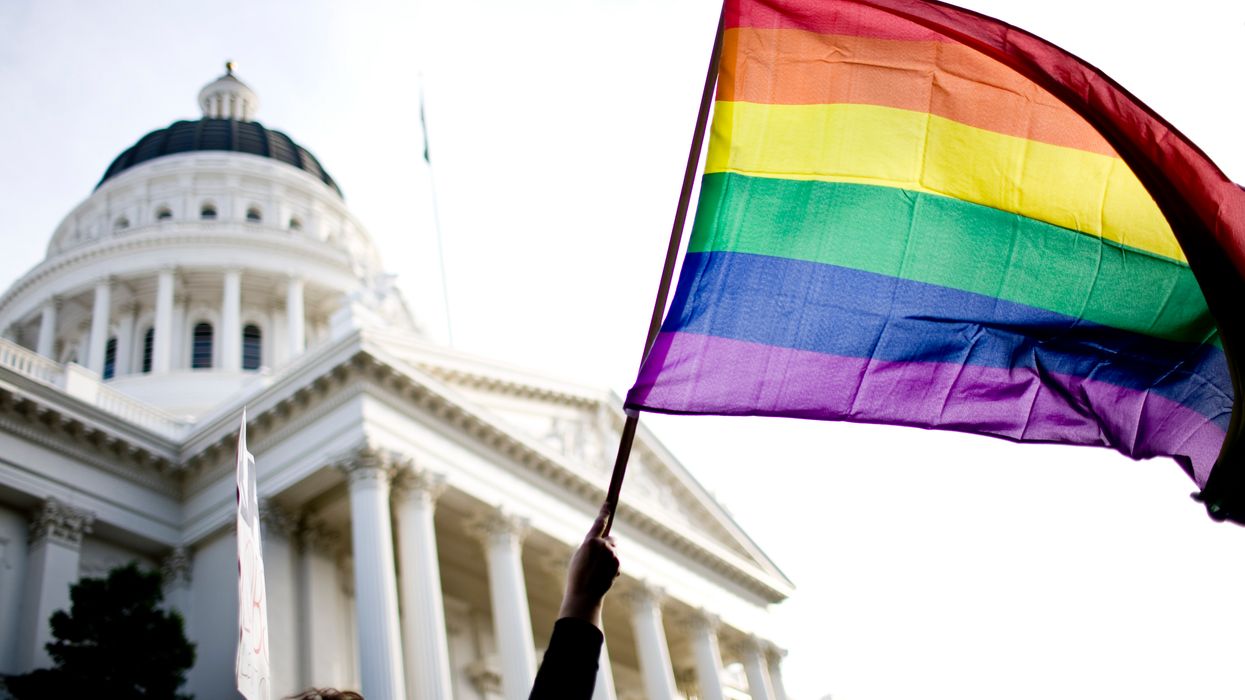
Max Whittaker/Getty Images

Interesting outcome to be sure
A married lesbian couple sued for discrimination when a Missouri retirement village denied their request for senior living — but a judge dismissed their case Wednesday.
Married couple Mary Walsh and Beverly Nance applied for housing at a St. Louis-area retirement community in July.
The village, Friendship Village Sunset Hills, which is a "faith-based but nondenominational nonprofit" independent living organization, denied their request.
Walsh said that she was disappointed with the decision and told the New York Times in August that she'd met people from within the community who seemed like they were very friendly.
"We'd met other people from the community, and they were very friendly," Walsh said. "I was feeling good about it."
The couple even went as far as putting down a $2,000 security deposit on their two-bedroom residence.
After reviewing the couple's application, the residence director at the facility called Walsh to inquire about the nature of her relationship with Nance.
"I said, 'We've been married since 2009,'" Walsh told the outlet. "[The director] said, 'I'm going to need to call you back.'"
The couple later received a parcel in the mail: the community's policy on cohabitation along with an application denial. According to the outlet, the policy placed certain limits on siblings, parents, grandchildren, and spouses — and same-sex relationships, married or not, did not fall within the approved policy guidelines.
"The term 'marriage' as used in this policy means the union of one man and one woman, as marriage is understood in the Bible," the policy stipulated, according to the Times.
In response to the denial, Walsh and Nance filed a federal lawsuit claiming sex discrimination and that the community violated the Fair Housing Act and the Missouri Human Rights Act.
In a statement, attorney Julie Wilensky, of the National Center for Lesbian Rights, said, "Mary and Bev were denied housing for one reason and one reason only — because they were married to each other rather than to men."
"This is exactly the type of sex discrimination the Fair Housing Act prohibits," Wilensky added. "Their story demonstrates the kind of exclusion and discrimination still facing same-sex couples of all ages."
ACLU of Missouri Legal Director Tony Rothert added, "Mary and Bev were financially and otherwise qualified for residency in the Friendship Village community. Their exclusion from this community is the result of discrimination alone."
Walsh concluded, "We've been together for nearly 40 years and have spent our lives in St. Louis. We want to grow older here by each other's side. We should not be prevented from accessing the housing and care we need."
The National Center for Lesbian Rights as well as the American Civil Liberties Union of Missouri are representing the couple.
According to a report by St. Louis Public Radio, U.S. District Judge Jean Hamilton dismissed the case on Wednesday.
The report noted that Friendship Village cited its "Cohabitation Policy" as the reason for denying Walsh and Nance, and as a result, Hamilton dismissed the case.
The policy defines marriage in its biblical terms — between one man and one woman, as "marriage is understood in the Bible."
In a memo, Hamilton wrote, "the Court finds the claims boil down to those of discrimination based on sexual orientation rather than sex alone."
In a statement to the outlet, Walsh said, "We are disappointed by the court's decision. Bev and I are considering our next steps, and will discuss this with our attorneys."
Arlene Zarembka, a lawyer for Walsh and Nance, said, "Friendship Village's denial of housing to Mary and Bev because they are two women — not a man and a woman — is discrimination 'because of sex' in the most literal sense. That Mary and Bev are lesbians doesn't change this analysis."
Neither the Fair Housing Act or the Missouri Human Rights Act prohibit discrimination on the basis of sexual orientation — only on the basis of sex.